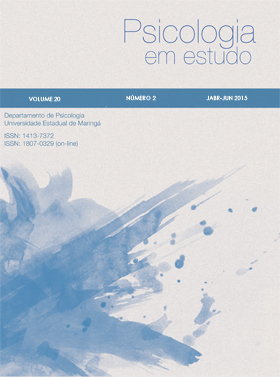HIPNOSE CLÍNICA E DORES CRÔNICAS: RUMO A UMA PERSPECTIVA COMPLEXA
Resumo
O presente trabalho busca construir noções teóricas iniciais baseadas no pensamento complexo de Edgar Morin para uma compreensão alternativa das relações entre hipnose e dores crônicas. Partindo de uma crítica ao pensamento instrumentalista dominante no campo, marcado pela simplificação, foca dois eixos principais: a) subjetividade e animalidade como campos possíveis e distintos para a qualificação das dores crônicas e b) as relações entre sujeito, processos inconscientes e mudança durante a hipnose. O trabalho é concluído destacando a pertinência de algumas noções complexas para o tema: o holograma, que destaca as múltiplas influências socioculturais e biológicas, contrapondo-se à perspectiva individualista sobre a dor e a hipnose; que a organização configuracional, destacando o aspecto singular da produção semiótica do sujeito e as lógicas particulares dos campos subjetividade e animalidade; e consciência que, enquanto qualidade emergente no transe, situa o sujeito na condição de mediador e não de controlador da experiência de dores crônicas.Downloads
Referências
Breton, D. (2010). Anthropologie de la douleur. Paris: Métailié.
Gonzalez Rey, F. (2011). Subjetividade e saúde. São Paulo: Cortez.
Jensen, M. & Patterson, D. (2014). Hypnotic approaches for chronic pain management. American Psychologist, 2, 167 – 177.
Morin, E. (2005). La méthode VI. L’Éthique. Paris: Seuil.
Neubern, M. (2014). Subjetividade e complexidade na clínica psicológica: superando dicotomias. Fractal, Revista de Psicologia, (26), 3, 835 – 852.
As opiniões emitidas, são de exclusiva responsabilidade do(s) autor(es). Ao submeterem o manuscrito ao Conselho Editorial de Psicologia em Estudo, o(s) autor(es) assume(m) a responsabilidade de não ter previamente publicado ou submetido o mesmo manuscrito por outro periódico. Em caso de autoria múltipla, o manuscrito deve vir acompanhado de autorização assinada por todos os autores. Artigos aceitos para publicação passam a ser propriedade da revista, podendo ser remixados e reaproveitados conforme prevê a licença Creative Commons CC-BY.
The opinions expressed are the sole responsibility of the author (s). When submitting the manuscript to the Editorial Board of Study Psychology, the author (s) assumes responsibility for not having previously published or submitted the same manuscript by another journal. In case of multiple authorship, the manuscript must be accompanied by an authorization signed by all authors. Articles accepted for publication become the property of the journal, and can be remixed and reused as provided for in theby a license Creative Commons CC-BY.
















